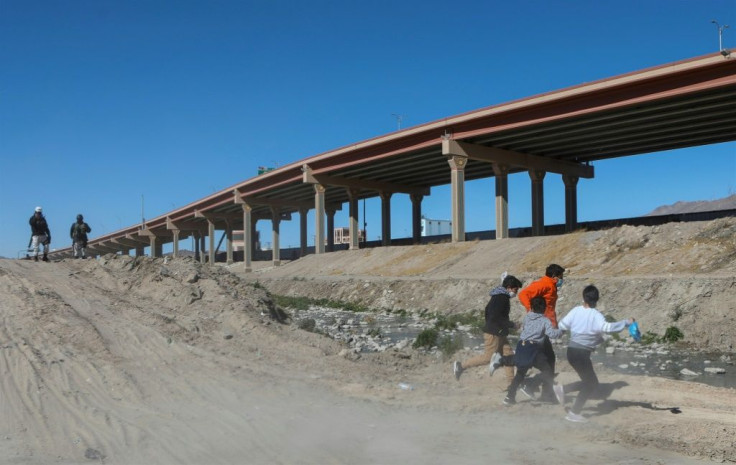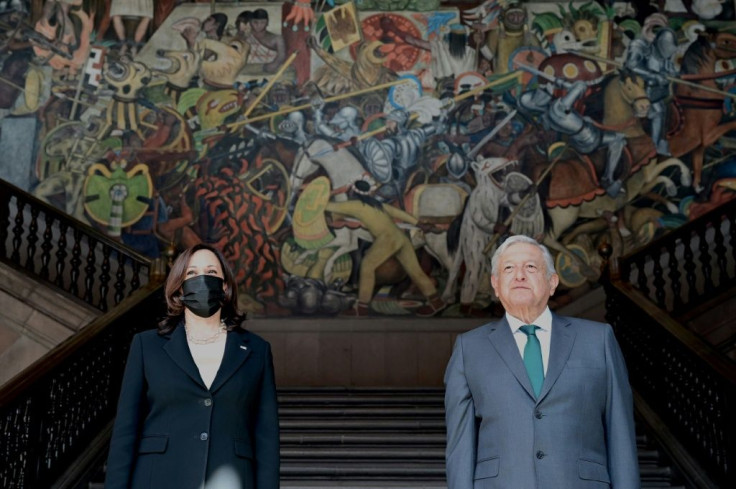Harris Says No Quick Fix To Root Causes Of Migration
US Vice President Kamala Harris said Tuesday that tackling the root causes of migration would take time, vowing to visit the US-Mexican border herself to see the situation firsthand.
Harris, on her first trip abroad as President Joe Biden's deputy, said that it was important to give people in violence-wracked Central American countries hope of a better future.
"Most people don't want to leave home and when they do it is usually for one of two reasons: either they are fleeing harm or to stay home means that they cannot satisfy their basic needs to sustain and take care of their families," she said.
"We know that if we give them a sense of hope that help is on the way that they will follow their first preference, which is to stay at home."
That would not happen overnight, she said.
"The issue of root causes is not going to be solved in one trip that took two days."

Earlier Harris held what she called "candid" and productive talks with Mexican President Andres Manuel Lopez Obrador on issues including security, migration and drug-smuggling.
The two leaders witnessed the signing of a memorandum of understanding between their countries on cooperation in aid and development in Central America, including youth empowerment programs.
Biden's special envoy Ricardo Zuniga told reporters that the memorandum of understanding between the two countries would have a "real focus on youth and reforestation."
Lopez Obrador has proposed expanding one of his domestic welfare programs in Central America, named Sembrando Vida, which provides economic grants to registered agricultural producers.

"Nobody leaves their towns, abandons their families and leaves their customs for pleasure," he told reporters ahead of the talks with Harris.
"Things are not solved with coercive measures. You have to give options, alternatives."
Harris's visit is part of the Biden administration's promise of a more humane immigration policy -- in contrast to the hardline approach taken by his predecessor Donald Trump.
Biden is allowing unaccompanied children to stay and be united with relatives living inside the United States, while urging undocumented migrants not to come.
The Republican opposition has accused Biden of creating a "crisis" on the country's southern border by failing to rein in migration.
Detentions of undocumented migrants, including unaccompanied minors, along the US-Mexico border hit a 15-year high in April, with nearly 180,000 people intercepted, according to the US authorities.
Harris was repeatedly asked by the press during her trip to Mexico and Guatemala why she had not visited the southern US frontier personally since taking office.
Asked whether she would commit to going to the border soon, she told reporters: "Yes I will and I have before."
"But the reality of it is that we need to prioritize what's happening at the border and we have to prioritize why people are going to the border," she added.
Trump sparked anger during his 2016 election campaign when he branded Mexican migrants "rapists" and drug dealers, and vowed to build a wall across the southern US border as part of his hardline immigration stance.
Biden's administration is expected to seek a "positive, constructive relationship" with Lopez Obrador, said Duncan Wood, a Mexico expert at the Wilson Center think tank.
"Down the road, if we get to a point where the migration situation is less of a crisis, then we may see more pressure from Washington on Mexico City on a whole range of issues," he said in a panel discussion.
But "we're not going to see any repetition of the past four years of the Trump administration with aggressive public statements and threats," he added.
© Copyright AFP {{Year}}. All rights reserved.





















